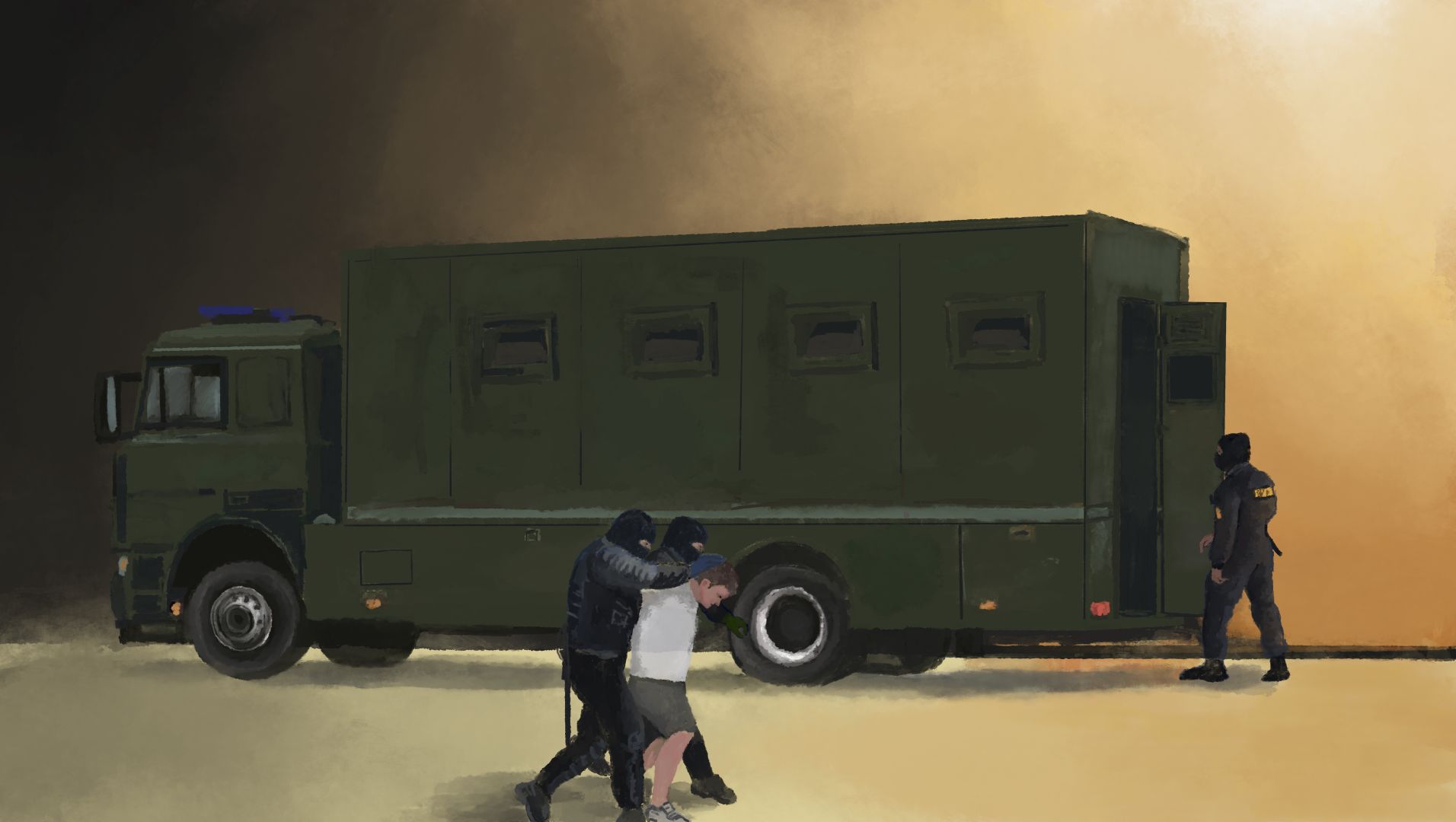'Walking reminders of atrocities'
Survivors of state brutality in Belarus share their stories.
To this day, Nina* blames herself for taking her boyfriend Alex* to the protest in downtown Minsk.
It was the evening of August 9, 2020, and earlier that day, the 25-year-olds had voted in their first presidential election.
Like millions of other Belarusians, they had hoped their votes would change the trajectory of their country.
President Alexander Lukashenko, often referred to as “Europe’s last dictator”, seemed to be losing his grip on power for the first time since he was elected in 1994.
Amidst the raging COVID-19 pandemic that the president had repeatedly dismissed as a psychosis and steep economic decline, “people were simply tired of Lukashenko,” explains David Marples, a professor of East European History at the University of Alberta.
Many had come out in support of the opposition candidate, Sviatlana Tsikhanouskaya, who had decided to run for office after her husband Syarhey Tsikhanousky, a former presidential candidate and blogger, was jailed. Demanding the release of political prisoners and a new democratic constitution that limited presidential powers and fair elections, Tsikhanouskaya had drawn tens of thousands to her rallies and quickly became a symbol of their hunger for change.
And for the first time in decades, many dared to believe that change was possible.
But they had underestimated Lukashenko’s thirst for power.
What happened next would crush Belarusians’ democratic ambitions and tighten the relationship between Minsk and Moscow, transforming a nation that had always been seen as a buffer between Europe and Russia into what many now say is a de facto vassal state.
Nina and Alex: The day of the vote
Nina and Alex had volunteered as independent observers at polling stations during early voting — Nina at a polling station in a school by her home and Alex at the factory where he worked. They said they could easily spot Tsikhanouskaya voters because they wore white bracelets and folded their ballots accordion-style to signal that they were backing the opposition. Nina was certain Tsikhanouskaya was winning, at least at her polling station.
On election day, the turnout was massive. Belarusians lined up early in the morning and waited for hours for their chance to vote.
But sensing danger in this, the government responded: the internet was blocked, thereby limiting the flow of information and the ease with which opposition supporters could organise. Independent observers were threatened by police, arrested, or denied access to polling stations.
According to a report by the Organization for Security and Co-operation in Europe (OSCE), the turnout had exceeded 100 percent in several polling stations, with several local election committees claiming they had to turn voters away because they had run out of ballots. By the time polls closed at 8pm, more than 84 percent of eligible voters across the country had cast their ballots.
Nina had voted early in the morning at the polling station where she had volunteered. She noticed that her ballot had only one signature from the head of the local voting committee, instead of two, as required by law. Still, she had to hurry home for her remote work, and so she let it slide. At 8pm, she and Alex went to the polling station to wait for the results.
At about 9pm, the Belarusian Central Election Committee announced preliminary results: It projected a landslide victory for Lukashenko.
Hundreds of thousands of people began to take to streets across the country in protest. In the capital, Minsk, protesters started to congregate near the Hero City of Minsk Obelisk - a popular downtown gathering spot that had been cordoned off by heavily armed riot police.
Nina and Alex waited outside the polling station. Then, at about 10pm, the local election committee taped their results to the locked doors of the school. Nina read the numbers in disbelief. The number of ballots cast for Tsikhanouskaya since the beginning of early voting on August 4 was smaller than the number of people Nina’s colleagues had observed wearing white bracelets on election day. The official turnout was also much smaller than what Nina had counted during early voting.
“We must go,” she said to Alex. She believed she was a witness to election fraud and that it was her duty to stand up to it.
They made their way to downtown Minsk, arriving some time between 10.30pm and 11pm.
